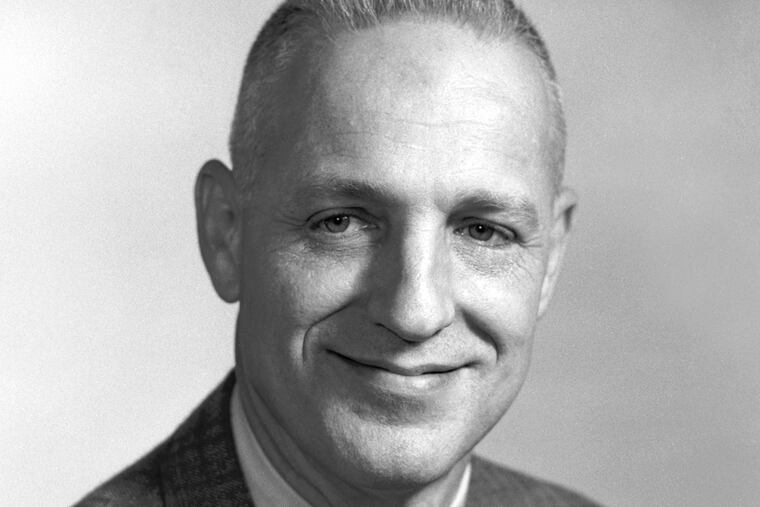Richmond T. Prehn, 93, cancer researcher

Richmond T. Prehn, 93, who helped change scientific thinking on immunity and cancer early in a career that included appointments as a senior professor at Fox Chase Cancer Center and director of the prestigious Jackson Laboratory in Bar Harbor, Maine, died Nov. 7 at his home in Seattle. Dr. Prehn died of cardiorespiratory arrest, according to information provided by his family.
Dr. Prehn worked at the Institute for Cancer Research from 1966 to 1976, the last two years after it was renamed the Fox Chase Cancer Center.
"He was always thinking ahead of where the field was at," said epidemiologist W. Thomas London, a colleague of Dr. Prehn's in Philadelphia. "He was a fiercely independent thinker."
By his own account for the American Association for Cancer Research (AACR), Dr. Prehn wrote that he had established an independent laboratory at the National Cancer Institute in Bethesda, Md., but left in the mid- 1950s when the institute director disparaged research he was pursuing in tumor immunology.
Rather than dropping his line of inquiry, Dr. Prehn moved on to a residency in pathology at the Public Health Service hospital in Seattle in 1956. While there, he and a colleague, Joan Main coauthored a paper that, he later wrote, "was truly the foundation of my career."
At the time, Dr. London recalled, scientists generally believed that the body's immune system did not recognize cancers as foreign invaders. Through mice studies, Dr. Prehn and his colleague suggested that suggested the body's own immune system might be able to be harnessed to fight cancer.
Immunotherapy has since emerged as one of the most promising lines of cancer research.
"He did not like merely repeating other people's work," said Liisa Prehn, a fellow physician and researcher whom Dr. Prehn met and married during his years at Fox Chase.
For all his independence, Dr. Prehn was friendly and well-liked. "Rich was one of those people who knew who he is and did not like to advertise himself," his wife said.
Born in New York City, Dr. Prehn attended Hofstra College and Cornell University, earning his medical degree at Long Island College of Medicine. He served in the Navy, including a general internship at the Philadelphia Naval Hospital, according to his statement for the AACR, which he joined in 1953.
He held academic appointments in pathology at the University of Washington in Seattle from 1958 to 1966, a university spokesman said, before moving to Philadelphia for 10 years. His next move was to Bar Harbor, where he directed the Jackson Laboratory on a campus between the coast and the mountains.
He left there to take a job as scientific director of the California Institute for Medical Research in San Jose from 1981 to 1986, then returned to the University of Washington, where he continued to conduct research until 2014, coauthoring several papers with his wife.
Dr. Prehn was himself a cancer survivor. When he was diagnosed with advanced metastic cancer of the prostate at 68 he designed his own treatment that eliminated the cancer, said Phyllis Loeb, a family friend in Washington.
Dr. Prehn loved sailing and for many years owned a Chinese junk that he sailed up and down both coasts of the United States.
Dr. Prehn is survived by his wife, the former Liisa Melartin; children Richmond Patton Prehn, Jussi Melartin, Ann Prehn and Riikka Melartin; and five grandchildren.
No services are planned.